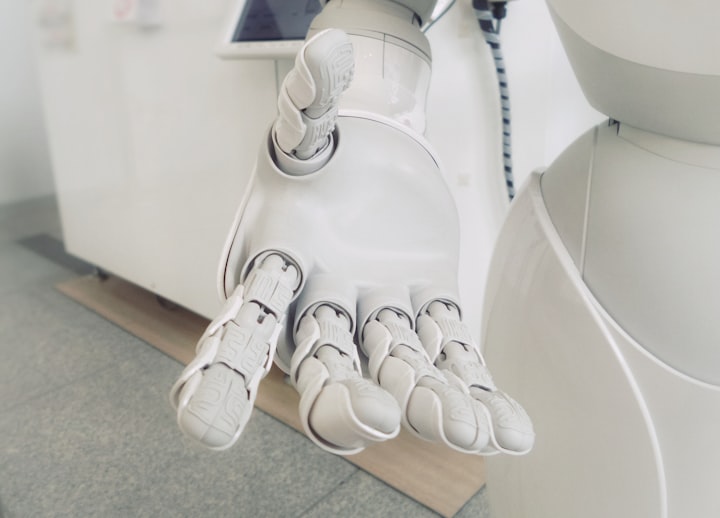
Artificial Intelligence (AI) has rapidly evolved, becoming an integral part of our daily lives, from virtual assistants to recommendation algorithms shaping our online experiences. As AI advances, the intersection with ethics becomes increasingly critical. This article explores the symbiotic relationship between AI and ethics, delving into the improvements AI undergoes daily and the ethical considerations that accompany its unprecedented growth.
The Ascendance of Artificial Intelligence: A Daily Evolution
The evolution of AI is a story of constant improvement, driven by innovation and the relentless pursuit of efficiency. In recent years, machine learning and deep learning algorithms have propelled AI into realms previously deemed impossible. Tasks that once required human intelligence, like language translation, image recognition, and complex decision-making, are now routinely handled by AI systems.
Daily, AI algorithms sift through vast datasets, learning patterns and refining their capabilities. They adapt to new information, continuously enhancing their accuracy and efficiency. This daily evolution is often imperceptible, as AI seamlessly integrates into our lives, streamlining processes and offering convenience.
The Unseen Progress: AI's Silent Advancements
Behind the scenes, AI systems are becoming more sophisticated without drawing attention. Recommendation algorithms on streaming platforms learn your preferences, providing personalized content. Virtual assistants understand and respond to natural language, adapting to your speech patterns over time. These advancements seem benign, even helpful, yet they underline a crucial truth – AI is growing more powerful every day, even as we go about our routines.
One notable example is the development of Generative Adversarial Networks (GANs). These systems can create incredibly realistic synthetic content, from images to text. While this technology presents exciting possibilities, it also raises ethical concerns regarding misinformation, deepfakes, and the potential for malicious use.
Ethics at the Core: Navigating AI's Moral Landscape
As AI evolves, ethical considerations become paramount. The power wielded by AI systems demands careful navigation to ensure positive outcomes for society. The ethical landscape of AI encompasses a multitude of concerns, from bias in algorithms to the impact on employment and questions of accountability.
Algorithmic Bias:
One of the foremost ethical challenges is the presence of bias in AI algorithms. AI systems learn from historical data, inheriting the biases present in that information. This bias can manifest in discriminatory outcomes, affecting marginalized communities disproportionately. Addressing algorithmic bias is a critical step in ensuring fairness and equality.
Privacy Concerns:
The increasing integration of AI in surveillance and data analysis raises concerns about individual privacy. As AI algorithms process vast amounts of personal data, questions arise about how this information is used, stored, and protected. Striking a balance between technological advancement and privacy rights is essential.
Job Displacement:
The automation capabilities of AI have led to concerns about job displacement. As machines take over routine tasks, the workforce may face challenges in adapting to evolving job requirements. Ethical considerations involve ensuring a just transition for workers and creating opportunities for retraining and upskilling.
Transparency and Accountability:
Understanding and trusting AI systems is crucial for their acceptance. Ensuring transparency in how AI makes decisions and holding developers and organizations accountable for the outcomes of AI applications are central ethical principles. The lack of transparency can lead to distrust and resistance to AI adoption.
Unintended Consequences: The Dual Nature of Technological Power
While AI promises numerous benefits, the dual nature of its power cannot be ignored. As we unwittingly contribute to AI's daily improvement through our interactions, the potential for unintended consequences looms. It is essential to recognize that the same technology designed to enhance our lives could be manipulated or misused, potentially resulting in harm.
Consider the development of autonomous weapons powered by AI. While these weapons may offer advantages in certain contexts, their deployment raises ethical dilemmas. The prospect of machines making life-or-death decisions without human intervention sparks debates about accountability, morality, and the potential for unintended consequences.
Guardians of Ethical AI: Toward Responsible Development
As AI becomes an ever-present force, it is crucial to establish frameworks for responsible development and deployment. Ethical AI requires collaboration among technologists, policymakers, ethicists, and society at large. Several initiatives are already underway to shape the ethical landscape of AI:
Ethical Guidelines and Standards:
Organizations and institutions are developing ethical guidelines and standards to govern AI development. These frameworks aim to ensure transparency, fairness, and accountability in the creation and use of AI systems.
Diverse and Inclusive Development:
Promoting diversity in AI development teams is recognized as a critical factor in addressing algorithmic bias. A diverse team brings varied perspectives, reducing the likelihood of unintentional bias in AI systems.
Public Engagement and Education:
Engaging the public in discussions about AI and its ethical implications fosters awareness and understanding. Education initiatives help demystify AI, enabling individuals to make informed decisions about its use and advocating for ethical considerations.
Conclusion: The Ethical Odyssey of Artificial Intelligence
As AI continues its silent evolution, the ethical considerations surrounding its growth become increasingly vital. Navigating this ethical odyssey requires a collective effort to ensure that AI benefits humanity rather than inadvertently causing harm. By fostering responsible development, addressing biases, and prioritizing transparency, we can guide the evolution of AI toward a future where technological progress aligns harmoniously with ethical principles. In this way, we become the guardians of AI's ethical trajectory, shaping a world where the immense power of artificial intelligence serves the well-being of humanity.
About the Creator
Latha jc
Discover inspiration and growth with me—where words fuel positive change. Let's turn dreams into reality and craft your unique story together. Click to begin the beautiful journey!





Comments
There are no comments for this story
Be the first to respond and start the conversation.